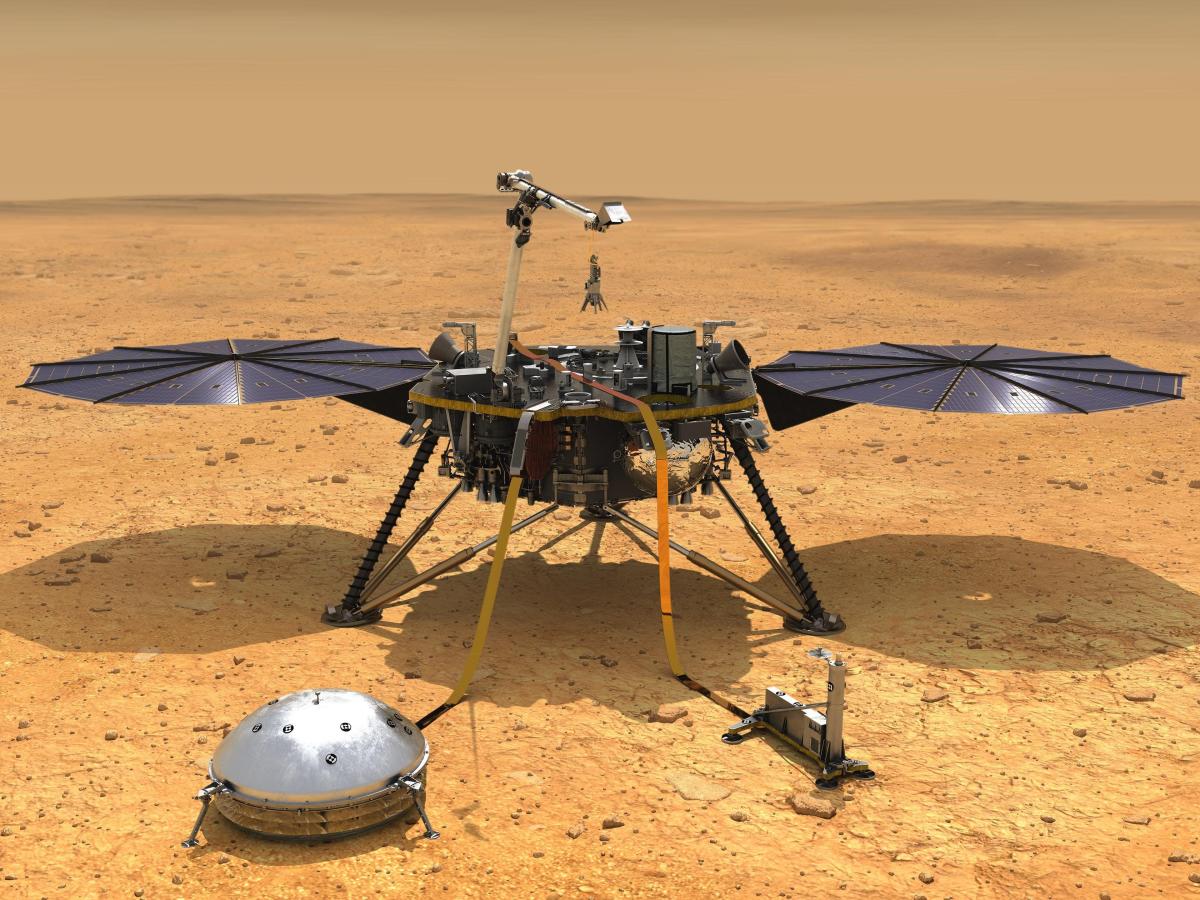NASA’s InSight Mars lander will soon be going out of work due to dust building up on its solar panels. This has already reduced their output by 90 percent.
After landing on the Red Planet on November 26, 2018, the InSight lander deployed two circular solar arrays with a diameter of 7 ft (2.2 m) each. At first, these generated 5,000 Wh of power each Martian day, but over the last three and a half years dust has settled on the panels, cutting power down to just 500 Wh per day, and it’s getting worse.

NASA engineers have used InSight’s robotic arm to trickle sand on the panels so the wind blew the grains across, turning them into little dust collectors. However, the power levels kept going down and the coming seasons at the lander’s site on Elysium Planitia will deposit enough dust to drop these levels to an irreversible point.
Mission Control has ordered the lander’s robotic arm locked into its retirement pose for the last time and power is being diverted to the spacecraft’s seismometer, which will continue to record for several months. By September, power levels will have dropped so low that the seismometer will have to be shut down and InSight will only be able to send the occasional image or signal.
InSight has already completed its primary mission and has relayed important information like the detection on May 4, 2022, of a magnitude 5 quake which was the most powerful yet detected off Earth.

“We’ve been hoping for a dust cleaning like we saw happen several times to the Spirit and Opportunity rovers,” said Bruce Banerdt, InSight’s principal investigator at NASA’s Jet Propulsion Laboratory in Southern California, which leads the mission. “That’s still possible, but energy is low enough that our focus is making the most of the science we can still collect.”


